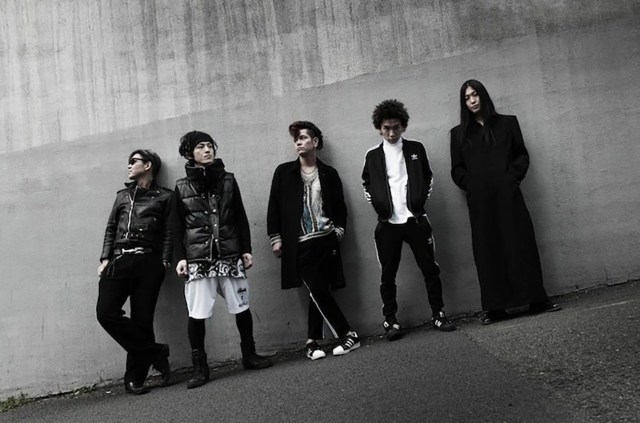
The story of how one guy decided to stick it to the man with coffee beans rather than punk music.
Our Japanese language reporter Seiji Nakazawa is a firm believer in the mantra ‘you only live once‘, where you live your life to the fullest and make the most of every opportunity. He started feeling this way since way back in his teenage years, when he picked up a guitar and started playing with a band. While he’s now a full time writer with SoraNews24, that’s not to say his dreams of being a professional musician never came to fruition; quite the opposite, actually, as he’s played gigs all over the world, and has even written and released his own record.
And while Seiji has managed to continue living a humble life after reaching the dizzying heights of worldwide rockstar fame, he’d always wondered what had happened to other musicians once their time in the spotlight ended, especially in the case of bands.
Putting on his investigative reporter glasses, Seiji tracked down one such person; a man called NG, a former guitarist in Tokyo-based punk band Roba (‘Donkey’).
▼ The band was active in the Shibuya, Koenji, and Shimokitazawa areas of Tokyo between 2011-2016.
After initially being signed to Japanese indie label GoodLovin’Production, Roba went on to create their own record label, going on tours of live houses all over Japan.
▼ One of Roba’s hits, “Early Afternoon”.
Even the band photo gives off an underground, electric atmosphere that made Seiji feel a little nervous about meeting a real life punk rocker. Surely this guy was going to be pretty intimidating…!
▼ … or so Seiji thought, as this is NG today.
These days, NG is the general manager and director of SOL’S COFFEE, a home-roasted coffee shop with three stores in Tokyo and another in Fukui Prefecture. He’s also going by his real name, Mr. Nakajima. There’s no way anyone would be able to tell he was formerly a punk band guitarist, and so Seiji decided to ask him about his punk band origin story.
Seiji: How did you start playing in a band?
Mr. Nakajima: In my third year of junior high school, I came across Shigeo Hamada, a third generation fish farmer who wrote the foreword to the liner notes of the Rolling Stones’ album Stripped. Inspired by him, I decided to start writing lyrics myself. I learned the guitar to accompany my lyrics. Then, once I got to high school, I heard another student playing Steppenwolf’s ‘Born To Be Wild’ which struck a chord with me, and I started playing in a band.
From there, we started getting paid to play in cafes and hotels, and it was during that time that I met the other members of Roba. At that time I was more into playing the blues, but I thought the other members’ “DIY spirit” was really cool. I remember recording Roba’s first demo in a lab at Tama Art University. Everything was just so gung-ho. I really wanted more than anything to make a living being a musician.
A few years later, Mr. Nakajima graduated from university and started working in a live house in Kichijoji called ‘Force Floor’. He was playing music on a daily basis, and he’d finally become a full-fledged professional musician. It was at that moment that Roba started to fall apart.
Mr. Nakajima: Each member’s ideals and reality became intertwined, like an unstoppable flow. That was a huge factor in the break-up of Roba, for sure. Around the same time, my other band ‘zampano’ also went on hiatus. I’m not sure of the exact reason, but our main singer left the band due to stress from the tight touring schedule. We looked for a new lead singer and found one, but after about two gigs, they died.
To be fair, my memory around that time is so hazy that I’m not sure that’s even true. All I knew is that I couldn’t keep on like that.
All of a sudden, both of Mr. Nakajima’s bands were over, and the life as a professional musician that he’d worked so hard to get was over too. It was around that time that he met Rieko Arai, the president of SOL’S COFFEE and his current wife.
So what happened next?
Mr. Nakajima: After I lost both my bands, I decided I wanted to start a music label.
Seiji: Like a company that distributes CDs?
Mr. Nakajima: More like one that makes the CDs. I had recording equipment, and luckily I had the experience of starting an independent label when I was in Roba. I thought it’d be a great chance to promote music that I thought was great. So I asked Reiko, and she said “Why don’t you buy a CD press?” When I heard that, my jaw hit the floor.
Seiji: How come?
Mr. Nakajima: Well, I had just assumed I’d have to get the CDs pressed at another company, based on the know-how I gained as a band member. I had never thought of buying a CD press and pressing them myself. Kind of like a coffee shop that has its own roasting machine; you can establish your brand much better that way. SOL’S COFFEE is all created by us, the workers — the walls, the floors, the bread and pastries. Everything here was much more DIY, independent and original than my ideal of an indie label. “Coffee shops are so punk,” I thought. That piqued my interest, and I thought I’d like to start working here instead.
Mr. Nakajima: And since working here my eyes have been opened to a lot. There’s a movement called ‘specialty coffee‘ that’s basically working as a counter-movement to all these big coffee chain corporations. In the past, it was common practice to cheaply bulk-buy a mixture of coffee beans from different regions or countries, and sell the coffee at a low profit margin.
But this wasn’t fair to the coffee farmers, who suffered more and more. Therefore, we decided to pay a fair price for good coffee beans. This way, we can improve the quality of the coffee we serve, while also giving money back to the farmers and increasing the value of the coffee itself.
Seiji: How punk! Like when the rock band Nirvana came out in the heyday of MTV and disrupted everything.
Mr. Nakajima: Yes! This movement is very ‘Smells like Teen Spirit’, isn’t it? In fact, when I looked into it, I found a lot of people from the punk culture were into the specialty coffee movement. I felt like there was a real connection between punk culture and being into specialty coffee — both are very ‘non-conformist’.
Seiji: So you are saying that the ‘spirit’ of the shop has not changed?
Mr. Nakajima: Well, we are just a coffee shop, but the punk spirit is still very present. In fact, when I was invited to a coffee event in Taiwan, I also played the guitar, even though I wasn’t specifically asked to, haha.
We also collaborated with the UNIQLO Asakusa store to make “SOL’S COFFEE” T-shirts, using the same design as the bags our coffee comes in. A portion of the proceeds will be given back to the coffee farmers who made the original jute bags. We wanted people who came to buy the t-shirts to consider the whole journey coffee makes, right back to the farmers who grow the beans. I personally think it is interesting that we were able to use the influence of a large corporation to get the point across about these small coffee shops. I think that these ideas came out of being in a punk band.”
▼ The t-shirts available at UNIQLO…
▼ … feature the logo present on the jute sacks of coffee.
While Mr. Nakajima is living his life happily as a barista, he still wants music to feature heavily in his life. His current dream is to record music made by workers at coffee bean farms, play their music in store and give all the profits from any CDs sold back to the workers.
And when Seiji asked if he was glad to have been in a band, Mr. Nakajima answered, “I have very precious memories of my time playing in a band, including Roba. I am the person I am today because of my life as a band member.”
So if you find yourself thirsting for some coffee with an interesting backstory to it, head on down to SOL’S COFFEE.
Cafe Information
SOL’S COFFEE ROASTERY
東京都台東区浅草橋3丁目25−7 NIビル1F
NI Building, 3-chōme−25−7, Asakusabashi, Taito City, Tokyo
Opening hours: 8:00a.m. – 5:00p.m
Closed on Wednesdays
Photos ©SoraNews24
● Want to hear about SoraNews24’s latest articles as soon as they’re published? Follow us on Facebook and Twitter!
[ Read in Japanese ]
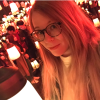
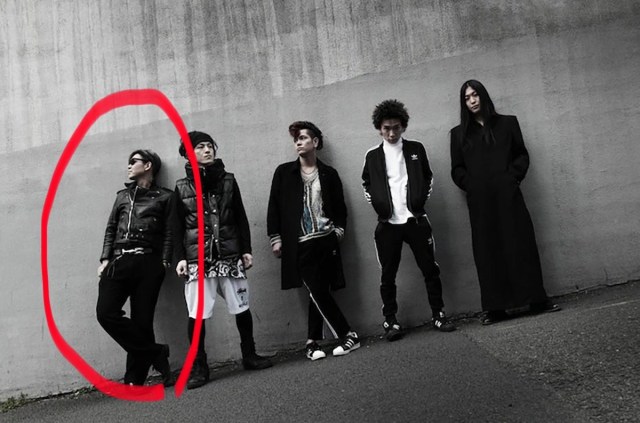
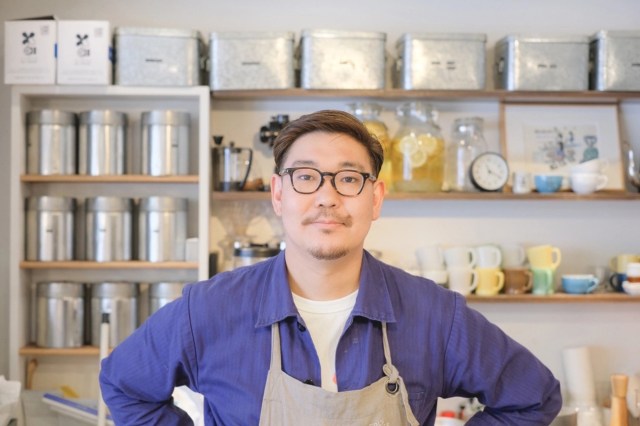
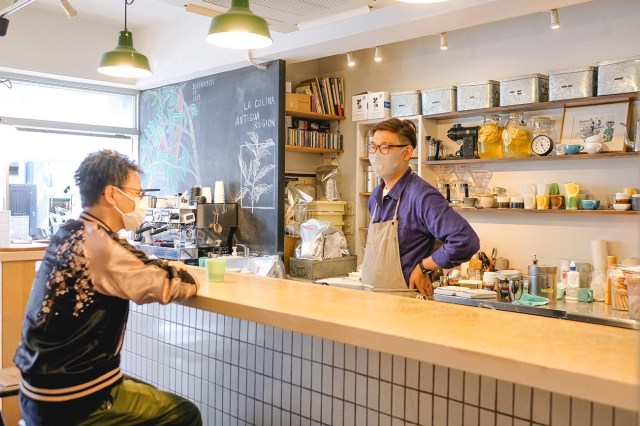
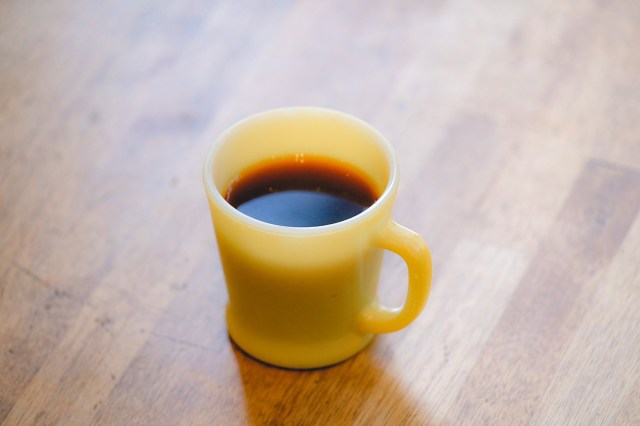
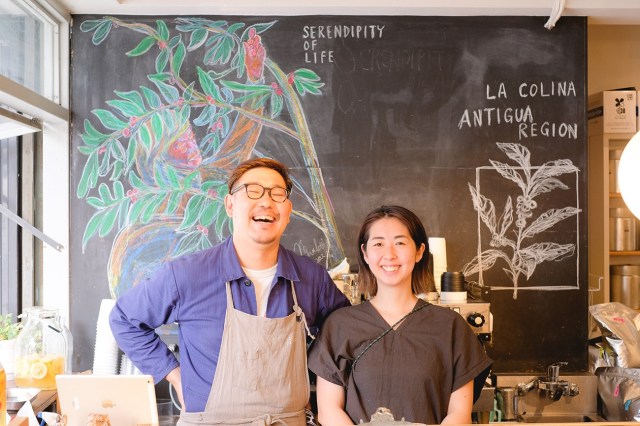
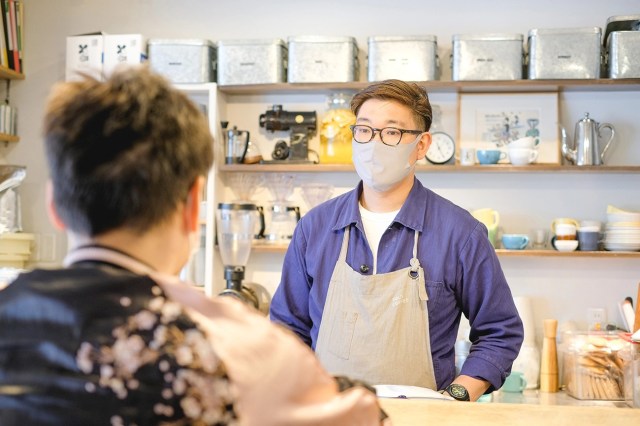
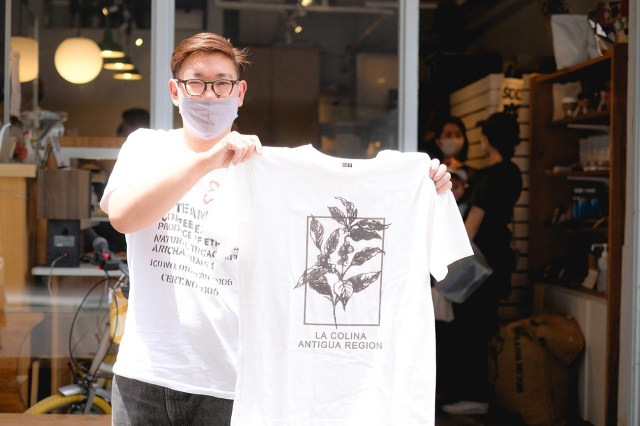
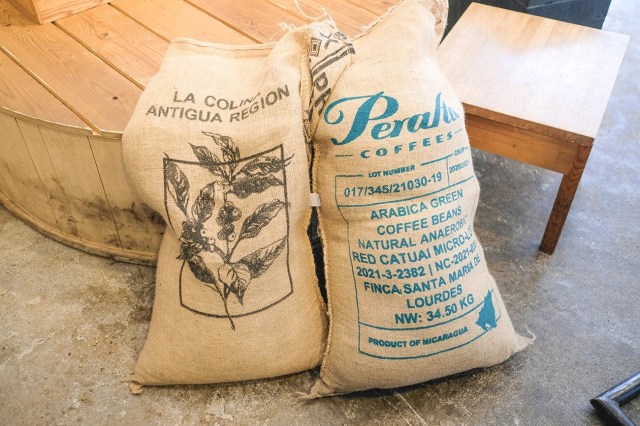
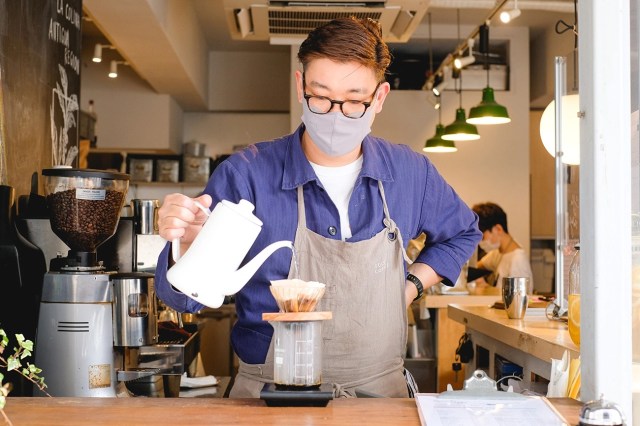
 Our reporter Seiji gets a weird package from overseas, meets a friend he didn’t know he had
Our reporter Seiji gets a weird package from overseas, meets a friend he didn’t know he had Want to date RocketNews24’s most eligible bachelor? Here’s your chance! 【Contest】
Want to date RocketNews24’s most eligible bachelor? Here’s your chance! 【Contest】 It’s a hard rock life: NINGEN ISU’s Shinji Wajima talks about songwriting, working with friends
It’s a hard rock life: NINGEN ISU’s Shinji Wajima talks about songwriting, working with friends Reporter Seiji is now guitar-strumming rockstar Seiji, makes his debut in England this August
Reporter Seiji is now guitar-strumming rockstar Seiji, makes his debut in England this August What’s it like to attend an idol concert where they’re singing lyrics that you wrote? Complicated
What’s it like to attend an idol concert where they’re singing lyrics that you wrote? Complicated McDonald’s new Happy Meals offer up cute and practical Sanrio lifestyle goods
McDonald’s new Happy Meals offer up cute and practical Sanrio lifestyle goods All-you-can-drink Starbucks and amazing views part of Tokyo’s new 170 meter-high sky lounge
All-you-can-drink Starbucks and amazing views part of Tokyo’s new 170 meter-high sky lounge More foreign tourists than ever before in history visited Japan last month
More foreign tourists than ever before in history visited Japan last month Studio Ghibli glasses cases let anime characters keep an eye on your spectacles
Studio Ghibli glasses cases let anime characters keep an eye on your spectacles Starbucks reopens at Shibuya Scramble Crossing with new look and design concept
Starbucks reopens at Shibuya Scramble Crossing with new look and design concept Beautiful Sailor Moon manhole cover coasters being given out for free by Tokyo tourist center
Beautiful Sailor Moon manhole cover coasters being given out for free by Tokyo tourist center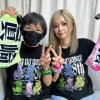 Our reporter takes her 71-year-old mother to a visual kei concert for the first time
Our reporter takes her 71-year-old mother to a visual kei concert for the first time Hamster abandoned at Tokyo ramen restaurant gets new home
Hamster abandoned at Tokyo ramen restaurant gets new home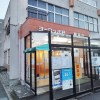 Hey, Japanese taxi driver! Take us to your favorite restaurant in Tsuruga City!
Hey, Japanese taxi driver! Take us to your favorite restaurant in Tsuruga City!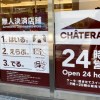 Japanese confectionary chain Chateraise opens first 24-hour branch with self-checkout
Japanese confectionary chain Chateraise opens first 24-hour branch with self-checkout Disney princesses get official manga makeovers for Manga Princess Cafe opening in Tokyo
Disney princesses get official manga makeovers for Manga Princess Cafe opening in Tokyo Beautiful new Final Fantasy T-shirt collection on the way from Uniqlo【Photos】
Beautiful new Final Fantasy T-shirt collection on the way from Uniqlo【Photos】 Is the new Shinkansen Train Desk ticket worth it?
Is the new Shinkansen Train Desk ticket worth it? Foreign English teachers in Japan pick their favorite Japanese-language phrases【Survey】
Foreign English teachers in Japan pick their favorite Japanese-language phrases【Survey】 Japanese convenience store packs a whole bento into an onigiri rice ball
Japanese convenience store packs a whole bento into an onigiri rice ball We try out “Chan Ramen”, an underground type of ramen popular in the ramen community
We try out “Chan Ramen”, an underground type of ramen popular in the ramen community Studio Ghibli releases Kiki’s Delivery Service chocolate cake pouches in Japan
Studio Ghibli releases Kiki’s Delivery Service chocolate cake pouches in Japan Japan’s bone-breaking and record-breaking roller coaster is permanently shutting down
Japan’s bone-breaking and record-breaking roller coaster is permanently shutting down New definition of “Japanese whiskey” goes into effect to prevent fakes from fooling overseas buyers
New definition of “Japanese whiskey” goes into effect to prevent fakes from fooling overseas buyers Our Japanese reporter visits Costco in the U.S., finds super American and very Japanese things
Our Japanese reporter visits Costco in the U.S., finds super American and very Japanese things Studio Ghibli unveils Mother’s Day gift set that captures the love in My Neighbour Totoro
Studio Ghibli unveils Mother’s Day gift set that captures the love in My Neighbour Totoro Foreign passenger shoves conductor on one of the last full runs for Japan’s Thunderbird train
Foreign passenger shoves conductor on one of the last full runs for Japan’s Thunderbird train Domino’s Japan now sells…pizza ears?
Domino’s Japan now sells…pizza ears? New Japanese KitKat flavour stars Sanrio characters, including Hello Kitty
New Japanese KitKat flavour stars Sanrio characters, including Hello Kitty Kyoto creates new for-tourist buses to address overtourism with higher prices, faster rides
Kyoto creates new for-tourist buses to address overtourism with higher prices, faster rides Sales of Japan’s most convenient train ticket/shopping payment cards suspended indefinitely
Sales of Japan’s most convenient train ticket/shopping payment cards suspended indefinitely Sold-out Studio Ghibli desktop humidifiers are back so Totoro can help you through the dry season
Sold-out Studio Ghibli desktop humidifiers are back so Totoro can help you through the dry season Japanese government to make first change to romanization spelling rules since the 1950s
Japanese government to make first change to romanization spelling rules since the 1950s Ghibli founders Toshio Suzuki and Hayao Miyazaki contribute to Japanese whisky Totoro label design
Ghibli founders Toshio Suzuki and Hayao Miyazaki contribute to Japanese whisky Totoro label design Doraemon found buried at sea as scene from 1993 anime becomes real life【Photos】
Doraemon found buried at sea as scene from 1993 anime becomes real life【Photos】 Tokyo’s most famous Starbucks is closed
Tokyo’s most famous Starbucks is closed One Piece characters’ nationalities revealed, but fans have mixed opinions
One Piece characters’ nationalities revealed, but fans have mixed opinions We asked a Uniqlo employee what four things we should buy and their suggestions didn’t disappoint
We asked a Uniqlo employee what four things we should buy and their suggestions didn’t disappoint Princesses, fruits, and blacksmiths: Study reveals the 30 most unusual family names in Japan
Princesses, fruits, and blacksmiths: Study reveals the 30 most unusual family names in Japan A Gintama fan’s emotional 19-year journey to buy a proper Lake Toya bokuto wooden katana【Pics】
A Gintama fan’s emotional 19-year journey to buy a proper Lake Toya bokuto wooden katana【Pics】 Attention coffee lovers: The RocketNews24 Ultimate Café Fukuburuko Ranking 2015 is here!
Attention coffee lovers: The RocketNews24 Ultimate Café Fukuburuko Ranking 2015 is here! Japan’s most punk rock candy store can be found in Tokyo
Japan’s most punk rock candy store can be found in Tokyo Antinomy: Talking to Urbangarde about their vision, music, and lying to fans
Antinomy: Talking to Urbangarde about their vision, music, and lying to fans Italians taste test Japanese canned coffee and tell us what they think【Video】
Italians taste test Japanese canned coffee and tell us what they think【Video】 Blue Bottle Coffee opens in Japan to two-hour lines; Mr. Sato gets impatient, goes somewhere else
Blue Bottle Coffee opens in Japan to two-hour lines; Mr. Sato gets impatient, goes somewhere else Super Mario creator Shigeru Miyamoto performs Mario theme with hip hop’s The Roots 【Video】
Super Mario creator Shigeru Miyamoto performs Mario theme with hip hop’s The Roots 【Video】 We visited an ultra stylish coffee stand on the streets of downtown Fukuoka
We visited an ultra stylish coffee stand on the streets of downtown Fukuoka Engrish sign at the Tokyo Olympics turns out to be hilariously accurate
Engrish sign at the Tokyo Olympics turns out to be hilariously accurate Real-life high school from Kyoto Animation’s Sound! Euphonium wins gold medal at band competition
Real-life high school from Kyoto Animation’s Sound! Euphonium wins gold medal at band competition Mr. Sato discovers the band of his dreams: this small box
Mr. Sato discovers the band of his dreams: this small box Our Japanese reporter tries Yukimi Daifuku mochi ice cream for the first time (probably)
Our Japanese reporter tries Yukimi Daifuku mochi ice cream for the first time (probably) Man arrested for buying cup meant for 100-yen coffee but pouring 150-yen latte into it
Man arrested for buying cup meant for 100-yen coffee but pouring 150-yen latte into it Japanese rock band B’z re-open search for guitar lost 20 years ago
Japanese rock band B’z re-open search for guitar lost 20 years ago Japanese female rock band Scandal earns a Guinness World Record for staying together for 17 years
Japanese female rock band Scandal earns a Guinness World Record for staying together for 17 years
Leave a Reply